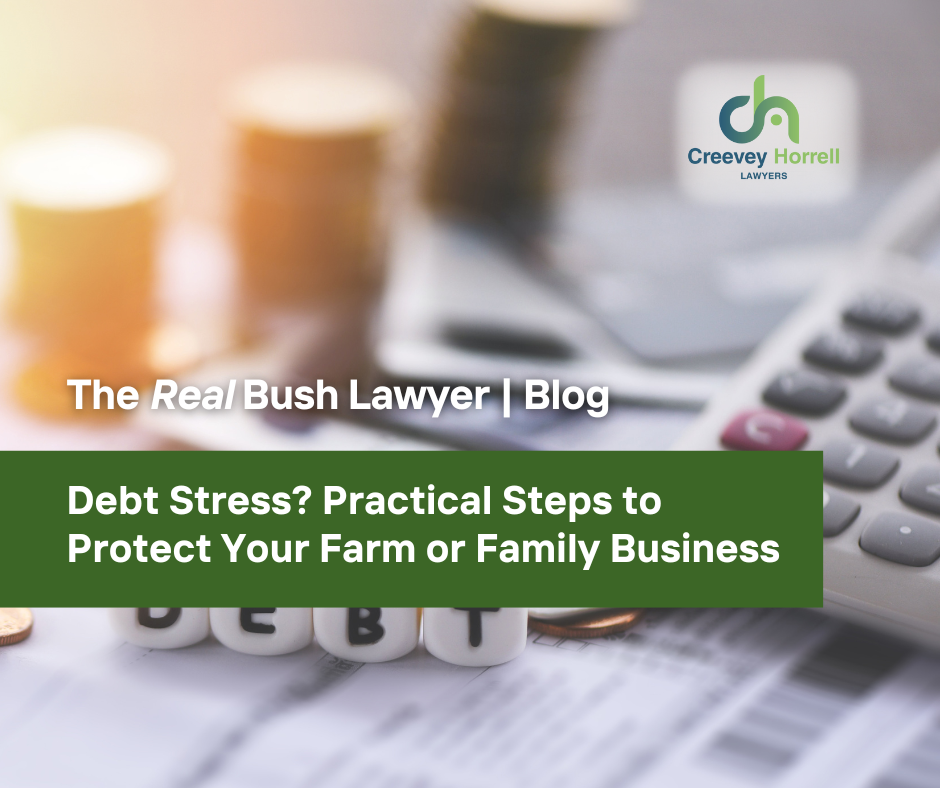DIRECTOR IDENTIFICATION NUMBERS
- Creevey Horrell Lawyers

- Jul 13, 2022
- 3 min read
Updated: Oct 11, 2022

As the year 2022 begins, so does the introduction of the DIN (Director Identification Number) regime in Australia.
What is the Director Identification Number and how does it work?
Company directors will have to verify their identity through a new Commonwealth Government agency called Australian Business Registry Services (ABRS).
A Director Identification Number (DIN) is a 15-digit identifier, unique to the person it is issued to and held for life, that will assist to prevent the use of fraudulent director identities and allow the authorities to track directors and combat "phoenix companies".
I'm already a company director. Do I need a DIN?
If you were already a company director before 1 November 2021, you have until 30 November 2022 to obtain a DIN.
If you are appointed as a company director between 1 November 2021 and 4 April 2022, you must apply for a DIN by 28 days after you were appointed.
If you are appointed as a company director from 5 April 2022 onwards, you must have a DIN before you are appointed. You can apply for a DIN at any time if you are expecting to be appointed as a company director within the next 12 months, but if you do not actually become a company director within 12 months after getting a DIN, the DIN will expire and you will need to apply for a new one before being appointed as a company director.
The timeframes relating to directors of companies governed by the Corporations (Aboriginal and Torres Strait Islander) Act are different:
If you become a director before 1 November 2022, you must apply for your DIN by 30 November 2023.
If you become a director from 1 November 2022 onwards, you must have a DIN before you are appointed.
Can someone process the DIN application for me?
No, because you need to prove your identity as part of the process. Normally this will include accessing your myGov account.
How do I apply for a DIN?
Details of how to apply are published on the ABRS website.
What happens if I don't obtain a DIN when required?
You could be subject to civil penalties of up to (currently) $1.11 million, criminal charges with a maximum period of imprisonment of 12 months, or both. There are other offences relating to DINs which attract those penalties – including applying for multiple DINs and using false information.
It is possible to apply to the ABRS for an extension of time to apply for a DIN, but at this stage there are no published guidelines about when extensions might be granted. We would expect that very good reasons would be required before an extension would be considered.
Are all company directors covered by the DIN regime?
Yes – directors (including alternate directors) of any of the following are covered, regardless of the name given to their position:
Australian companies.
Foreign companies registered in Australia.
Bodies corporate that are registered Australian bodies.
Broadly, this means directors (and alternate directors) of companies and bodies corporate registered under the Corporations Act. Directors of companies that are regulated by the ACNC (Australian Charities and Not-for-profits Commission) rather than ASIC (Australian Securities and Investments Commission) will be required to have a DIN.
Being any of the following won't trigger the need for you to have a DIN:
a sole trader;
a partner in a partnership;
a member of the committee of a body corporate for a unit complex;
a member of the committee of an incorporated association;
an employee of a company (unless you're also a director).
The Commonwealth Government can make regulations to alter the scope of the DIN regime, so it's important to be aware of any future changes if you have a role with a company such as being a company secretary or an executive officer.




.png)




Comments